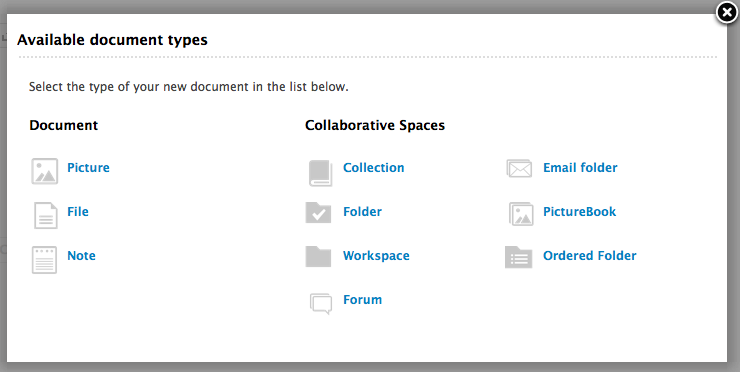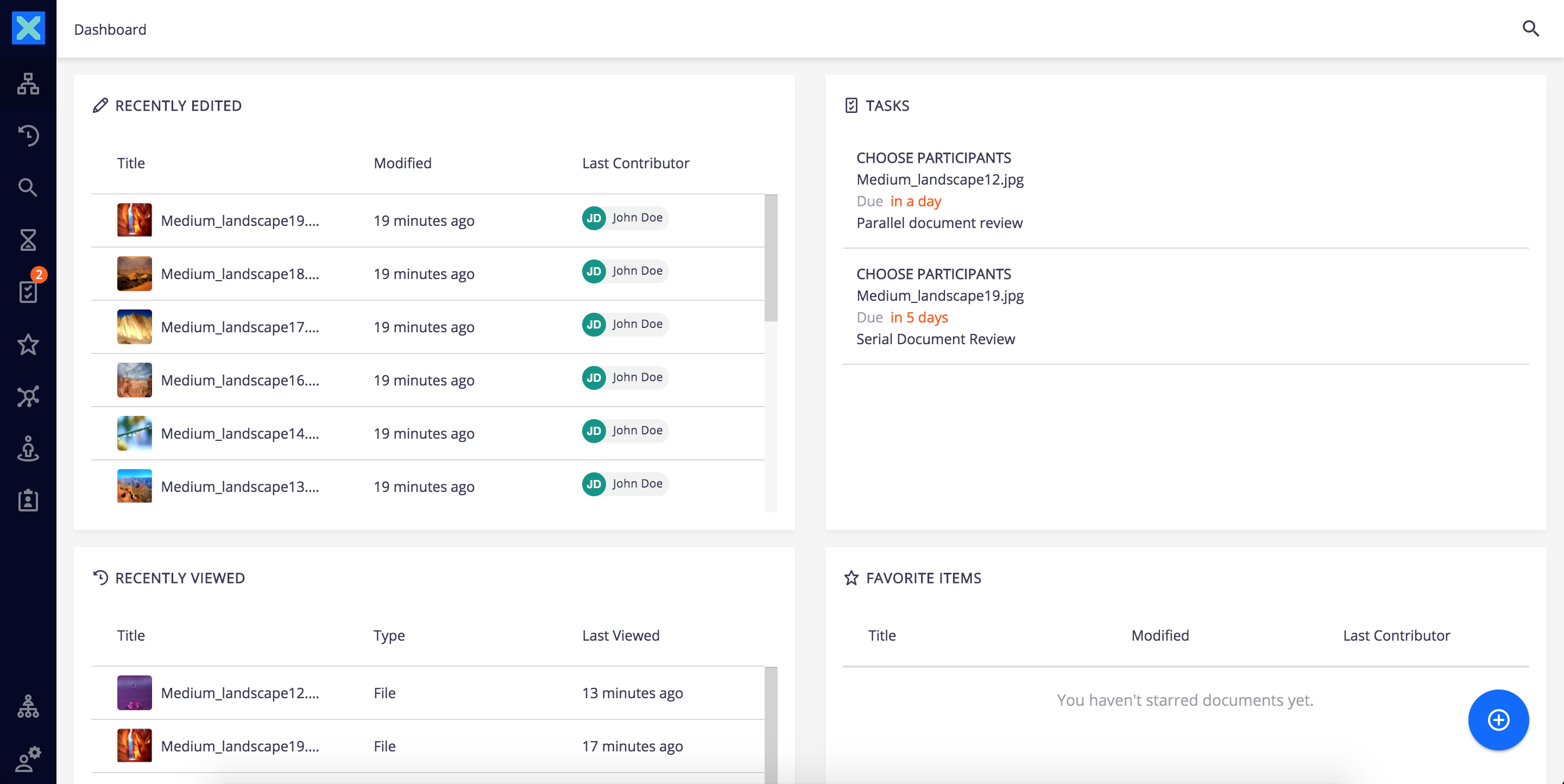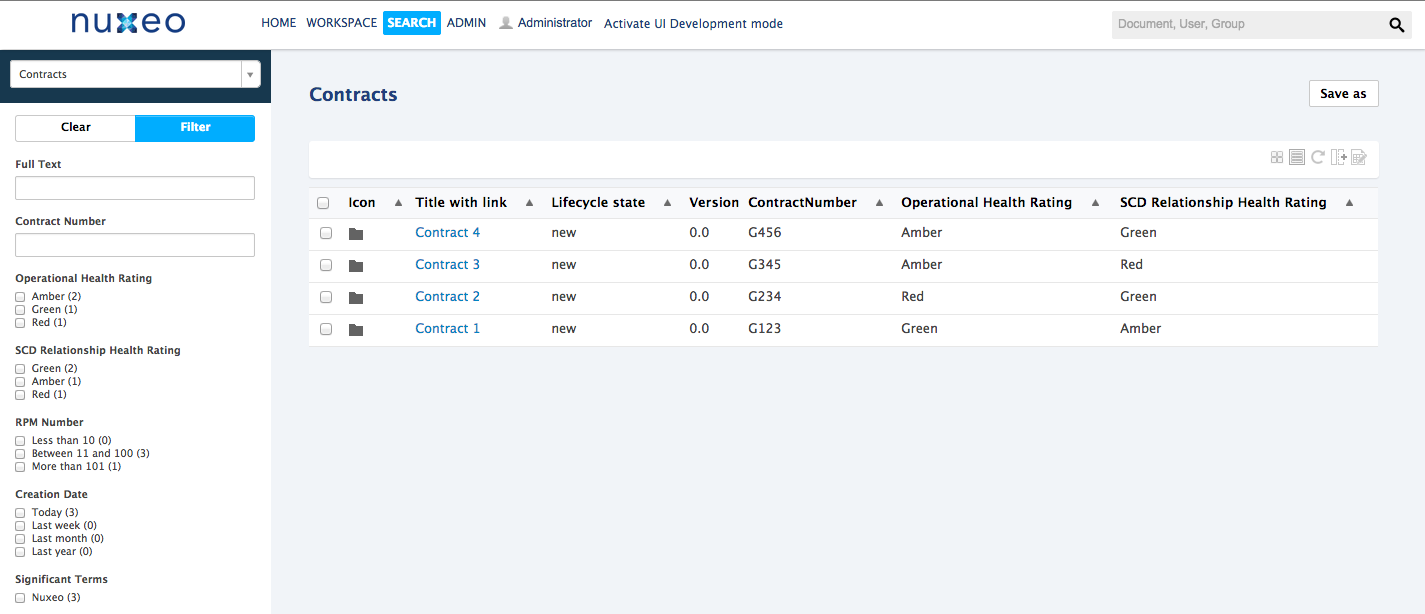Create
| JSF UI | Web UI |
|---|---|
Create a document using the New button to select the type of document you want to create among all Nuxeo Platform's document types.




|
On Web UI, the Create button 



|
Preview
| JSF UI | Web UI |
|---|---|
For all previewable documents, a Preview button (

|
On Web UI, all type of documents can be previewed: Audio, PDF, Office, Video, 3D, etc.
A preview button is available at the top right-and corner of each document and below the document itself.
When you click on it, a popup is displayed previewing your document.


|
Browse
| JSF UI | Web UI |
|---|---|
Navigation Tree: The default navigation tree displayed on the left hand side of the pages is the folders navigation tree. It displays all the domain structure from the root. It enables you to easily access any space in the application structure.




|
Side Menu: The side menu offers two different tabs.
Clicking on elements on the left will open a side panel (also called Drawer) with the content of the tab selected: browsing options are on the first left column, content to browse on the second and content to view on the main area. This new pattern allows to start browsing without changing the context of work. The side menu displays all the domain structure from the root.




|
Search
| JSF UI | Web UI |
|---|---|
Default Search: The Search can be accessed at the top in the three main spaces, select the Search tab and it will enable you to search on keywords, metadata and additional criteria such as the location in the application.



|
Search Tab: The Search tab can be accessed from the side menu and enables you to search a document using documents metadata You can for instance select metadata of the searched document or the date of specific events such as publication, creation.




|
Workflow
| JSF UI | Web UI |
|---|---|
Two workflows are available by default on the Nuxeo Platform, the serial workflow and the parallel workflow.
You can start them from any document where you have at least Edit or Manage Everything rights. Go on the document that you want, select the workflow needed and click on Start.
A workflow tab is now available on the document, where you will have to select the participants to the review that will have to accept of reject the document.
If the task is assigned to you, different options are available. You can accept or reject the document but you can also, delegate or reassign the task to another coworker.


|
The serial workflow and the parallel workflow are also available by default on Web UI. Users who are involved in workflows are alerted by email and can have a synthetic view of all their pending tasks on documents in their dashboard or on the Task tab. The documents they have to review are listed there.
Go on the document that you want to review and click on 





|
Download
| JSF UI | Web UI |
|---|---|
| Users can download documents on their computer. It is possible to download:
- One document at a time
- A selection of document
- An entire workspace, folder, section
The Export button is available at the top right-hand corner of the page, by clicking the icon |
As in JSF UI, users can download a single document or a selection of documents on Web UI:
From a Document
- Go to the document you want to download
- Click on the Download button 

|